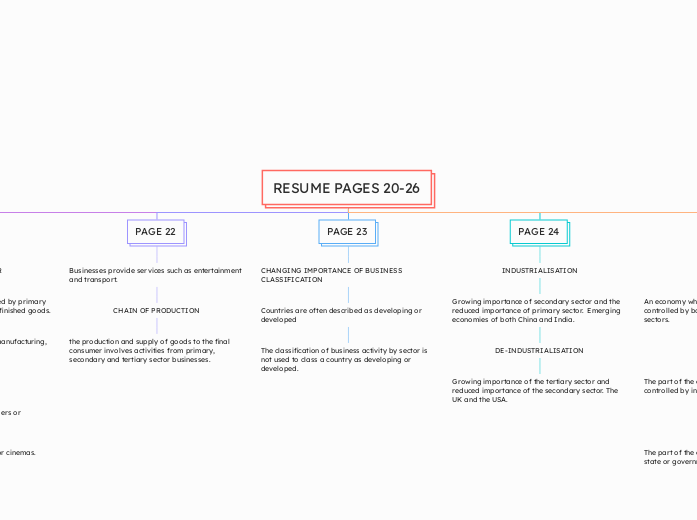by José Manuel Gil Lozano 10 months ago
86
RESUME PAGES 20-26

by José Manuel Gil Lozano 10 months ago
86

More like this
Consumer help to decide what to produce, they only produce the goods and services that consumers want.
Only be bought by people who have enough money to pay.
Decisions about what produce alll made by government.
Produces goods and services that all in the population need, based on providing good-quality services providing by the primary and secondary sector.
PRIVATE SECTOR
The part of the economy that is owned and controlled by individuals and companies for profit.
PUBLIC SECTOR
The part of the economy that is controlled by the state or government.
DE-INDUSTRIALISATION
Growing importance of the tertiary sector and reduced importance of the secondary sector. The UK and the USA.
The classification of business activity by sector is not used to class a country as developing or developed.
the production and supply of goods to the final consumer involves activities from primary, secondary and tertiary sector businesses.
Activities of the secondary sector: manufacturing, construction.
TERTIARY SECTOR
Provide services to the final consumers or businesses.
Examples: shops, restaurants or cinemas.
Include agricultural products. (for example rice)
Examples of primary sector business are: farming, fishing or also can be mining.
Primary sector often provides raw materials.